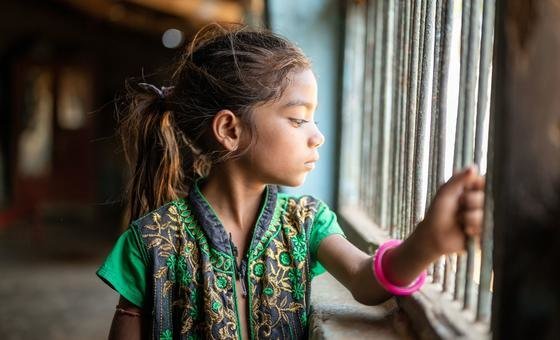The number of children worldwide without access to social protection continues to rise, putting them at risk of poverty, hunger and discrimination, the International Labour Organization (ILO) and the UN Children’s Fund (UNICEF) said in a report published on Wednesday.
Between 2016 and 2020, an additional 50 million boys and girls aged 15 and under missed out on child benefits, driving up the total to 1.46 billion globally.
Increased risk of hardship
Child and family benefit coverage rates either fell or stagnated in every region of the world during this period, according to the report.
For example, Latin America and the Caribbean saw coverage decline significantly, from roughly 51 per cent to 42 per cent, whereas rates remained around 21 per cent in Central and Southern Asia.
Failure to provide children with adequate social protection leaves them vulnerable to hardships such as poverty, disease, poor nutrition, and increased risk of child marriage, the UN agencies warned.
They said children are twice as likely as adults to live in extreme poverty, surviving on less than $1.90 a day – a reality for approximately 356 million youngsters worldwide.
Learning from the pandemic
Furthermore, a billion children live in “multidimensional poverty”, meaning they do not have access to education, health, housing, nutrition, sanitation, or water. Ranks increased by 15 per cent during the COVID-19 pandemic, reversing progress in reducing child impoverishment.
The pandemic has also highlighted how social protection is critical in times of crisis, according to the report.
Although nearly every government either expanded existing schemes or introduced new measures to support children and families, most fell short of making permanent reforms to guard against future shocks.
Expand and invest
Natalia Winder-Rossi, UNICEF Director of Social Policy and Social Protection, said universal child benefit can be a lifeline amid increasing economic hardship, food insecurity, conflict and climate-related disasters.
“There is an urgent need to strengthen, expand and invest in child-friendly and shock-responsive social protection systems. This is essential to protect children from living in poverty and increase resilience particularly among the poorest households,” she added.
For children and families
The report urges policymakers to take action towards universal social protection for all children, including by investing in benefits that offer proven and cost-effective ways to combat child poverty.
Authorities are also advised to provide child benefits through national social protection systems that also connect families to crucial health and social services, such as free or affordable quality childcare.
Other recommendations include securing sustainable financing for schemes by mobilizing domestic resources and increasing budget allocation for children, and strengthening social protection for parents and caregivers, including by guaranteeing access to decent work and adequate employee benefits.

